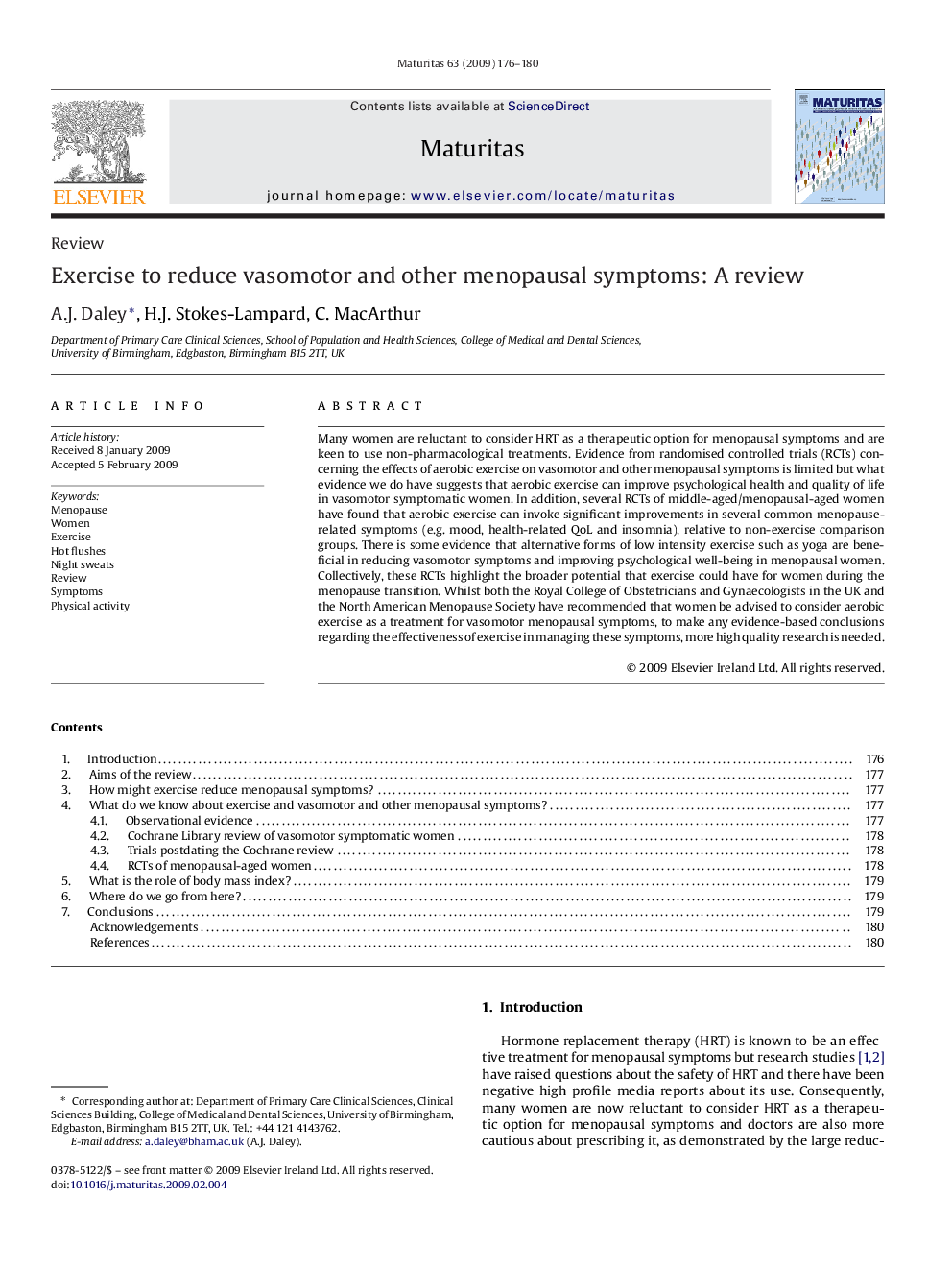| Article ID | Journal | Published Year | Pages | File Type |
|---|---|---|---|---|
| 1918313 | Maturitas | 2009 | 5 Pages |
Many women are reluctant to consider HRT as a therapeutic option for menopausal symptoms and are keen to use non-pharmacological treatments. Evidence from randomised controlled trials (RCTs) concerning the effects of aerobic exercise on vasomotor and other menopausal symptoms is limited but what evidence we do have suggests that aerobic exercise can improve psychological health and quality of life in vasomotor symptomatic women. In addition, several RCTs of middle-aged/menopausal-aged women have found that aerobic exercise can invoke significant improvements in several common menopause-related symptoms (e.g. mood, health-related QoL and insomnia), relative to non-exercise comparison groups. There is some evidence that alternative forms of low intensity exercise such as yoga are beneficial in reducing vasomotor symptoms and improving psychological well-being in menopausal women. Collectively, these RCTs highlight the broader potential that exercise could have for women during the menopause transition. Whilst both the Royal College of Obstetricians and Gynaecologists in the UK and the North American Menopause Society have recommended that women be advised to consider aerobic exercise as a treatment for vasomotor menopausal symptoms, to make any evidence-based conclusions regarding the effectiveness of exercise in managing these symptoms, more high quality research is needed.
